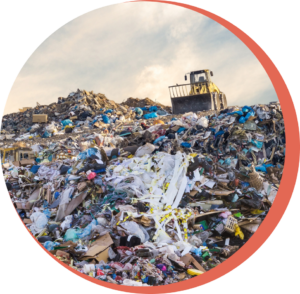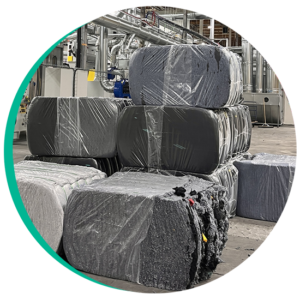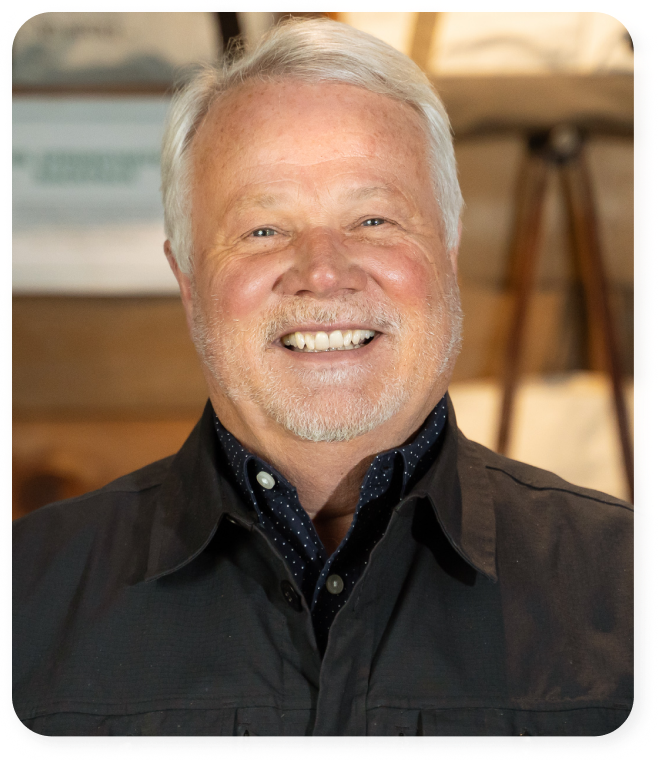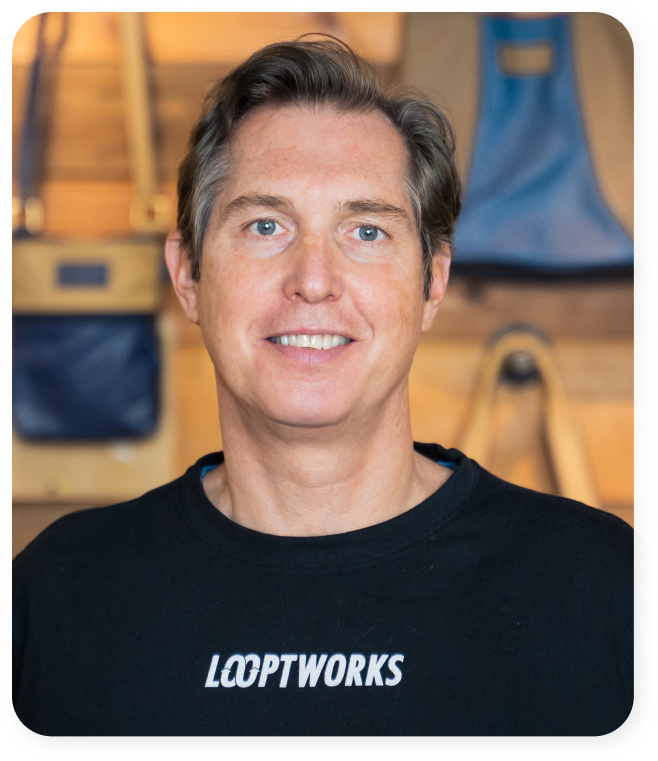
Recycling textiles helps reduce waste, save resources, and lessen the environmental impact of fashion. By turning old fabrics into new materials, we keep these items out of landfills and reduce the need for new materials like cotton and synthetic fibers. The aim is to create a circular economy where textiles are reused, which lowers the industry’s carbon footprint and encourages sustainable practices. Textile recycling also inspires new ideas, promotes responsible manufacturing and shopping, and supports a future with less waste.
We address textile waste through advanced sustainable methods for textile recycling designed to eliminate landfill impact. Our scalable processes help companies reduce waste while increasing the integration of recycled fibers into their supply chains. By converting discarded textiles into feedstock for new products, Looptworks enables a circular approach to textile production.

The rise of fast fashion has increased production and consumption of low-cost, short-lived clothing, accelerating waste generation.
Recycling textiles can create jobs in sorting, processing, and repurposing industries while saving costs associated with waste management.
Recycling textiles reduces the carbon footprint associated with manufacturing new fabrics and disposing of old ones.
Non-renewable resources like petroleum (used in synthetic fibers) and limited arable land for cotton production make recycling essential to preserve these materials.
Recycling textiles supports a circular economy by extending the life of materials and reducing dependency on linear “take-make-waste” models. By embracing textile recycling, we can significantly reduce waste, conserve resources, and promote a sustainable future.
Whether your excess textiles are high-quality or low-quality, Looptworks offers tailored solutions to keep them out of landfills. Let’s create a plan to turn your textile waste into a circular resource, transforming it into valuable materials for new products and advancing sustainability.

Denine has over 20 years of experience driving new business opportunities for leading companies, including E.I. DuPont de Nemours & Company, Inc., The Dow Chemical Company, Outlast Technologies, and DST Systems. She holds a BS from the University of Pittsburgh and a Certification in Executive Management from the Kenan-Flagler School of Business at the University of North Carolina at Chapel Hill.

Tami is a senior accounting leader with over 16 years of experience in the manufacturing and textile industry. Her specialties include process development and implementation, mergers and acquisitions, job and project costing and analysis, and managing complex teams and technical projects. Tami has served as Chief Financial Officer and Controller for a variety of innovative companies, where her analytical skills and strategic mindset helped organizations create efficiencies in their financial systems.

Kelley is a passionate and strategically minded business development leader with more than two decades of experience in the sporting goods apparel industry. He has experience in product construction, league partnerships, retail relationships, supply chain management, sustainability, circularity, and carbon footprint management. Kelley builds successful partnerships by putting the customer first while simultaneously advancing his organization’s business objectives.

Suzy is a product leader and operations expert with more than 25 years of experience in the textile industry. She is passionate about finding creative solutions to complex problems and motivating people to action through vision, strategy, collaboration, and communication. Suzy has proven expertise in product development, sustainability, marketing, supply chains, and innovating processes and best practices to drive results.

Scott is a visionary leader with more than 32 years of experience in strategic branding, innovative product creation, supply chain sustainability, and sales and marketing for global organizations. He founded Looptworks in 2009 as an industry solution for turning excess materials into upcycled consumer products. In 2022, Scott transitioned the company to a B2B business model focused on eliminating global textile waste through closed-loop solutions.

Scott is a visionary leader with more than 32 years of experience in strategic branding, innovative product creation, supply chain sustainability, and sales and marketing for global organizations. He founded Looptworks in 2009 as an industry solution for turning excess materials into upcycled consumer products. In 2022, Scott transitioned the company to a B2B business model focused on eliminating global textile waste through closed-loop solutions.